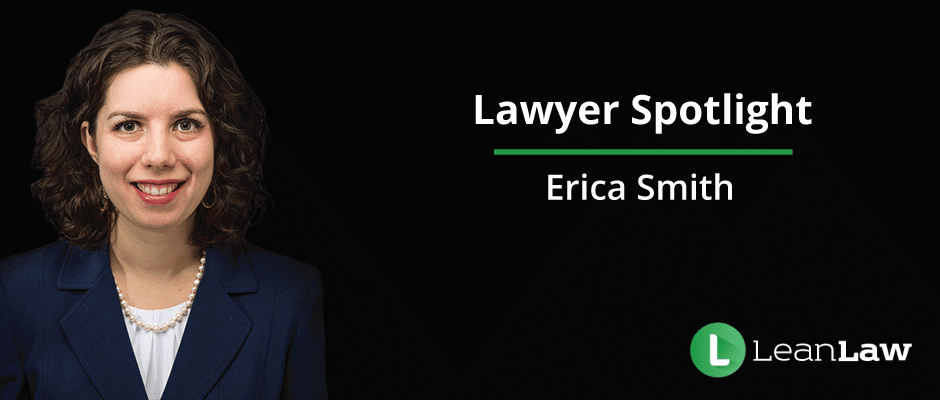Lawyers are Heroes: Erica Smith


Erica Smith is a swing dancing constitutional lawyer at the Institute for Justice. Fighting for educational choice and throwing pots are two main passions. She insists that if she didn’t work for the Institute of Justice, she would not be a lawyer.
Ever since I was a kid, I liked the idea that if you see something wrong in the world, you can sue and try to fix it. My parents made so many sacrifices for me, they both worked so hard to give me everything. I wanted to be able to make all their sacrifices count by doing good.
Constitutional law. The Institute for Justice is a non-profit organization that brings lawsuits under the federal and state constitutions to curb government overreach and abuse. We focus on four areas:
Educational choice is the one area where we don’t sue the government. Instead, we actually help the state defend educational choice programs in court. But in all our lawsuits, we’re protecting individual liberties and advancing a constitutionally limited government.
This is actually my favorite area to litigate in. Educational choice is about the right of parents to choose the best education for their child’s individual needs. We are very active, not only in the courtroom, but also in advising state legislatures of the constitutionality of specific programs.
Some programs are very controversial and they get sued by teachers’ unions and other educational choice opponents. We help the government defend the program because government attorneys don’t have the expertise we do. We’ve been very successful in defending those programs, including twice at the US Supreme Court. It’s intellectually satisfying, but it’s also emotionally satisfying because you’re helping parents to be able to help their kids get a good education. It means a lot to me.
It’s fighting as hard as I can to get them the results that they want in court. It’s a lot of hours and it’s incredibly stressful to know that people are counting on you. I would not be able to do it if I was working for a big law firm, just representing big corporations in skirmishes over money. When you know that there are families counting on you because whether or not you win their case is going to affect what kind of job they can get, whether they can advertise their business, whether they can send their kids to a good school, whether they can keep their home – this is affecting them on a very real and day-to-day level.
I helped get South Dakota’s educational choice program passed. South Dakota is a very rural state, they don’t have a lot of educational options, and there are a lot of people there who need better choices than what the government is offering.
A very dedicated state senator had been trying for years to get a program passed. Everyone kept saying it was unconstitutional. I wrote a couple of memos to the legislature and a letter to the governor, urging them that it was constitutional. I was closely involved in getting it passed and giving the governor of South Dakota comfort that he can sign this bill without violating the State Constitution. In the legislature, things happen quickly and you sometimes have to stay up all night to write something and make things happen. Totally worth it.
The program now gives away almost a million dollars in scholarships to low-income students.
I would be doing pottery in the mountains somewhere. If I could not be at the Institute for Justice, I would not be practicing law at all. The Institute for Justice is a very special place. I have never been able to be surrounded by so many passionate and like-minded people before. It feels like home.
I do swing dancing and pottery and I’m very serious about both of them. I also exercise obsessively.
Not yet. But I’ve been doing pottery for like 13 years, but I’ve only been doing swing dancing for a year or so. So I’m not at the competition level. It’s a goal.
One of my favorite places to be is running on the forested trails outside my office. When you’re not in front of the computer anymore and it’s just you and the music and the pounding of the pavement, you can reflect on everything that’s going on with a different perspective. I find that incredibly therapeutic.
To find out more about Erica Smith, go to: http://ij.org/?s=erica%20smith
And if you know a heroic lawyer whom you think we should profile, tell us about this person in the comments below.